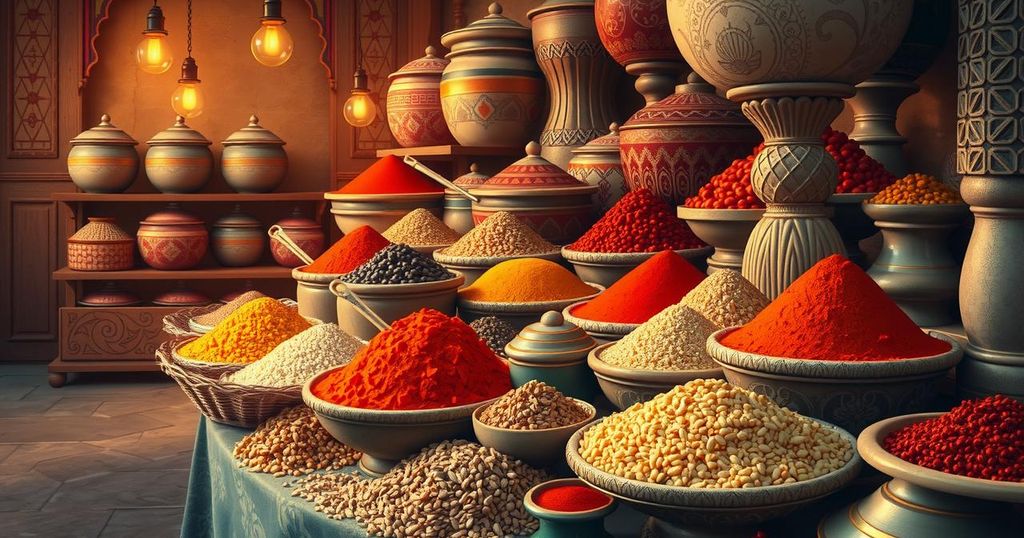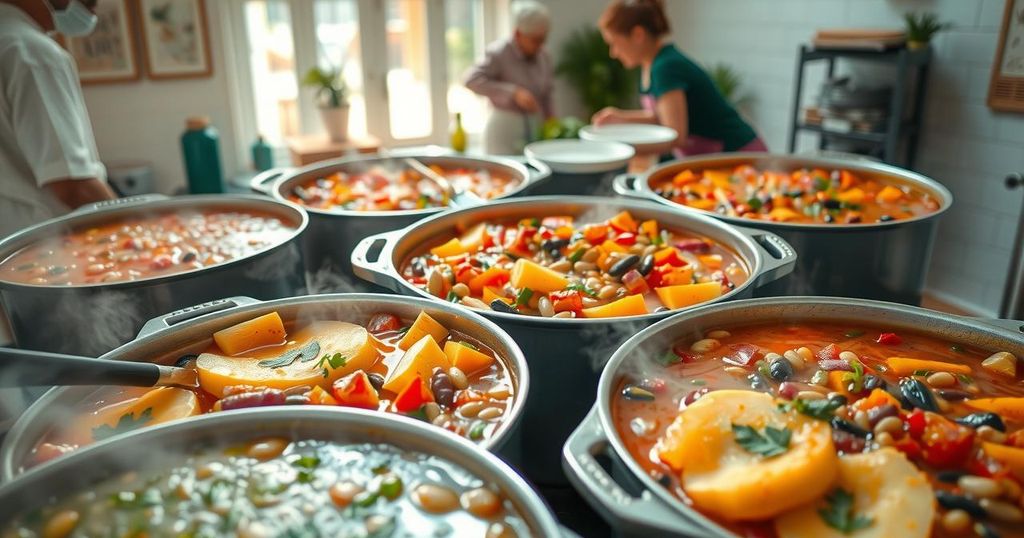Tajoura’s Community Spirit Shines Through Ramadan’s Bazin Tradition
The residents of Tajoura, Libya, unite each Ramadan to prepare bazin, a favored dish served during iftar. It comprises unleavened barley flour and is typically accompanied by a stew of vegetables and mutton, though alternatives are often necessary. This communal effort showcases the town’s resilience during challenging times and promotes charity and unity among its inhabitants.
Each year during the holy month of Ramadan, the residents of Tajoura, a town located east of Tripoli, unite to prepare and share a cherished dish known as bazin. This dish serves as an ideal meal for iftar, the evening repast that marks the breaking of the daily fast observed by Muslims. Bazin, which is prepared from unleavened barley flour, is typically served with a flavorful stew made from vegetables and mutton, although simpler alternatives such as tomato sauce have been utilized due to past shortages stemming from regional conflicts.
The preparation of bazin is a community endeavor, with participants of all ages willingly contributing their efforts. Men in Tajoura usually volunteer to create the bread in communal kitchens, stirring barley flour and water in large pots using long wooden sticks to form the dough. Other community members knead this dough into sizeable clumps resembling large dumplings, which are then either baked or steamed. Once completed, volunteers distribute the bazin to individuals lining up outside, eagerly anticipating their meal for iftar.
Ramadan is regarded as a period of deep prayer, charitable giving, and heightened spirituality. In Tajoura, this sacred time also celebrates the tradition of bazin, reinforcing the communal bonds among its residents. This enriching experience is a testament to the town’s resilience and unity, despite past adversities.
In conclusion, the annual preparation of bazin in Tajoura during Ramadan is not merely about food; it symbolizes community spirit and resilience amidst challenging circumstances. The communal effort involved in its preparation fosters unity and highlights the importance of charity and sharing during this sacred period. Such traditions play a vital role in maintaining cultural identity and strengthening social ties in the face of adversity.
Original Source: www.sfchronicle.com




Post Comment